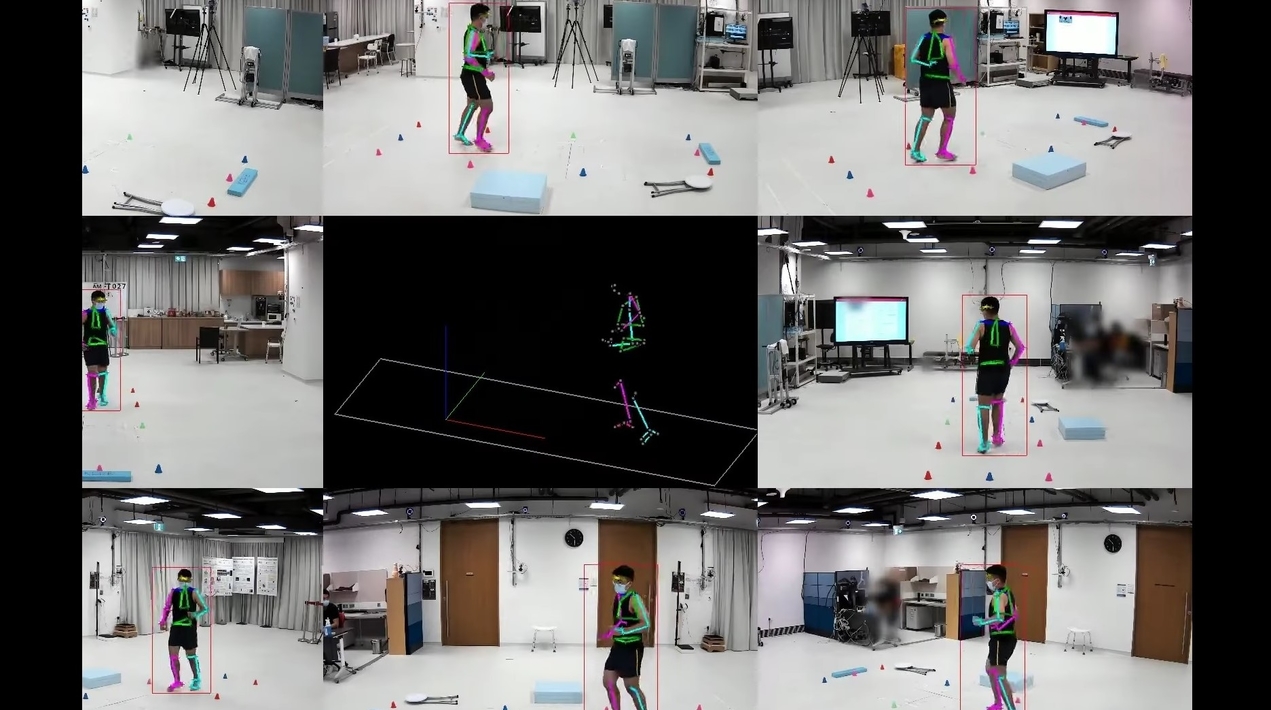
Researchers at NTU Singapore have developed a motion capture technology that would aid doctors and physiotherapists in their consultations and diagnoses of patients in need of rehabilitation after an injury or recovering from an illness.
Compared to conventional motion capture (mocap) labs that involve a lengthy setup process with technicians and a physiotherapist, the NTU-developed tech would allow patients to start consultations within minutes. As it streamlines the analysis of subjects’ movements by removing the need for marker placement and data post-processing, consultations would also take an hour less on average.
Through capturing and analysing the movements of over 150 subjects with machine learning, the technology has also been shown to be more accurate than marker-less motion capture systems available in the market.
Traditionally, to capture human motion, most labs use a market-based system. By attaching reflective markers to a subject’s body, cameras reconstruct the movement in 3D by observing the movements of the markers. The new system eliminates the need for these markers, as it has ‘learned’ where the markers would be placed through machine learning.
The made-in-NTU marker-less motion capture system has already received interest in being adopted by several Singapore-based companies. A patent application for the coating has also been filed.
The market size of global physiotherapy equipment is projected to reach US$21.7 billion by 2025. This is an increase from an estimated value of US$16.6 billion in 2020, growing at a CAGR of 5.6% during the forecast period.
The world’s ageing population continues to expand; this coupled with the subsequent increase in the global prevalence of chronic diseases are the major factors driving the growth of the physiotherapy equipment market. Moreover, the growing incidence of sports injuries, degenerative joint disorders, and cerebrovascular disease will also contribute to market growth in the coming years. However, the shortage of skilled personnel and alternative therapies such as acupuncture are expected to challenge market growth to a certain extent.
The current COVID-19 pandemic has resulted in a massive number of patients visiting healthcare facilities daily. According to WHO data, there were 9.4 million confirmed COVID-19 cases and 482,730 deaths globally, as of June 25, 2020. Owing to this, there is a major shortage of hospital beds, healthcare providers, and basic medical equipment. This is compelling hospitals and other care facilities to increase the number of healthcare providers. As a result, several physiotherapists and other healthcare-related professionals are being deployed.
As a result of the COVID-19 pandemic, governments across the world began announcing country-wide lockdowns as well as social distancing measures to prevent the collapse of the health systems. Governments also issued limitations and bans on medical procedures and elective surgeries. These restrictions have hindered the demand for physiotherapy equipment.
As a result, physiotherapy equipment manufacturing companies face problems including in-person product demonstrations, operating their facilities at full capacity, and attending conferences that help generate future sales opportunities. Moreover, lockdowns in countries in the Asia Pacific region (e.g., China and India) have resulted in delays in the production and shipment of physiotherapy products.
All these issues combined are expected to negatively impact the growth of the physiotherapy equipment market. However, contrastingly, as per the recommendations by the World Confederation for Physical Therapy (WCPT), COVID-19 patients are recommended to undergo physiotherapy for 3-4 weeks to enable early recovery and for the improvement of their overall health. Thus, the demand for physiotherapy equipment is expected to increase over the next five years owing to the increasing number of COVID-19 cases.
















